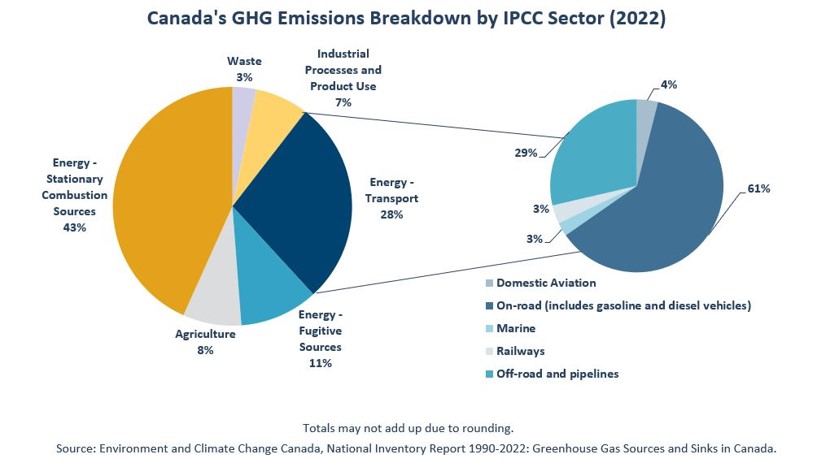GHGs
How are we responding to the challenge of climate change?
Canada’s transportation fuels industry is deeply committed to addressing climate change, recognizing it as one of the most critical challenges of our time. The Canadian Fuels Association (CFA) and its members are actively working to support the nation’s transition to a low-carbon economy by focusing on three key areas:
Improving the Efficiency of Fuel Production
CFA members are dedicated to enhancing the energy efficiency of refining processes to lower greenhouse gas (GHG) emissions. Continuous improvements in refining operations are reducing the carbon intensity of fuel production. By embracing energy-efficient techniques and working to lower the carbon intensity of its processes to produce and upgrade its products, the industry is making strides toward reducing its overall environmental impact while ensuring a stable supply of energy for Canadians.
The Development and Use of New Technology
Technological innovation is a key part of the industry’s approach to decarbonization. By incorporating advanced emissions-reducing technologies, the sector is helping Canada move toward a cleaner transportation system. This includes exploring the use of biofuels and cleaner hydrogen, carbon capture systems, and improved emissions controls in vehicles and refineries.
Production of Innovative Low-Carbon Fuels
Low-carbon fuels, such as biofuels, are a critical tool in reducing emissions today. These fuels can be used in existing engines, making them a practical, immediate solution to lower carbon output. Investments in biofuels and advancements in their efficiency are essential for bridging the gap to wider electrification. Canada’s transportation fuels sector is expanding biofuel production to strengthen energy security and support economic growth while contributing to a cleaner, more sustainable future.
